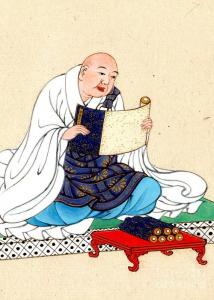The deep matter of the heart is not bound by any religion. It is not owned by any culture. It is our common heritage as human beings.
I suspect it will someday be possible to diagram the matters of the heart in scientific terms. And we are not there. Each time people think they’ve come to the end of science and have the world all figured out, it turns out they’re just stepping over the rise of a hill. What is then found over that rise, are vast mountains looming in the distance. Sort of the joy of science. And its frustrations.
That said we have arrived at a place where scientific investigations of consciousness offer tantalizing hints. But the truth of the matter is that even if at some point science maps out our inner lives and provides a description of how our wiser hearts emerge within the world, that will never be more than a recipe in a cookbook. We need to put the ingredients together, to cook them, and then, as the old saying goes, find the proof of that pudding in our eating.
Among the things I’ve found is that if we are careful, cautious, humble, then the best place to find the thread to the wise heart, is in fact within our world’s religions. But it calls for a creative tension between seeing large and committing to some specific.
I’ve found if we knock out the capital “T,” traditionalism offer some important guidance. First is its assertion that at some point we need to align with a specific religion. Specifically, that one needs to seek initiation into that tradition. To own it, and to be owned by it. To take the received tradition seriously.
It is extremely hard to go to the depths of the intimate way without some connection to a specific way. And that connection has something to do with an alignment of the heart, and a commitment to practices.
Where Traditionalists, those with that capital “T” go most wrong, in my estimation, is their radical rejection of modernity and reason. This later part has led some Traditionalists down some very dark alleys. The correction is being open hearted, and always willing to learn. To never think the journey is over. Or, that any one tradition has all the answers.
Still, and this is the conundrum. It appears that the universal is only ever encountered within the specific. There is no enlightenment, there is only ever some personal encounter with the boundless. And with that no experience is completely steady state, once and done. Along the way, however deep we go into the mystery, we are constantly in danger of confusing our own appetites with the inner stirrings of wisdom.
However, by consciously binding ourselves to a tradition, we are constantly challenged about our own views about any given thing. This births a creative tension, a cradle for our hearts.
And binding ourselves we find other dangers. For instance, the temptations to various literalisms. For the most part bowing into a tradition binds to pursuing matters regarding our inner life. But it is easy to confuse them with history, as hard facts on the ground. We can take an anecdote derived from our experience following the currents of a tradition and confuse it with scientific investigations. Each of these things can have bad outcomes.
I’ve found the best metaphor for my experience is to understand religion, to find the spiritual within religion, is to treat it as poetry. Merriam-Webster tells us poetry “formulates imaginative awareness of experience…” Specifically embracing the poetic sense with the fullness of our hearts, allows us to live into the deep matter. By faithfully following the specific rules of whatever path we are on, whether sonnet or haiku or blank verse, as I’ve said taking it not literally, but seriously, the way opens.
And all along the way we need to constantly ask, is this true? To accept the challenge of the tradition, but to test them. The danger for us is slipping into some solipsist spiritual dead end, where confirmation of our experience is simply what makes me feel good in the moment. Taking our tradition seriously checks this impulse. Sometimes a dream is just a dream.
Avoiding the literalisms, the dead letter of the tradition requires this small twist. We need to see large. To best follow the intimate way is to learn about at least two traditions. And deeply. While, at the same time, genuinely following one. Taken together the way is wide open.
So, first. Find your path. Dig deep. Genuinely live there. And. We also need to understand how awakening happens within many traditions. And to get all of that in our bones. All the while remembering, awakening happens without necessary reference to any religion.
Sincerity. And humility. Two words a bit too rare in our time and place. But sincerity and humility are critical to this project. Along with open hearts. And, always, open eyes.
A naturalistic traditionalism.













